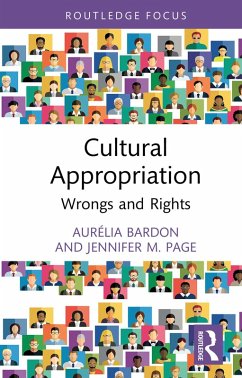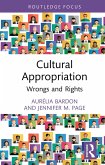Their analysis of wrongful cultural appropriation centers on three questions: whether appropriation involves theft; whether it communicates disrespect; and whether it disregards requests made by marginalized groups about their cultural practices. Sometimes, they argue, it is structural injustice rather than individual wrongdoing that is at stake. They examine cultural appropriation's political dimensions, asking whether the state should be neutral between appropriative and non-appropriative artistic expression. They contrast bans on wrongful cultural appropriation and the state's using its expressive power as a speaker, spender, and educator to discourage it. They also consider the ethical questions that arise when cultural appropriation debates spur further debates about online shaming and cancel culture.
Using cases from music, fashion and the arts, Cultural Appropriation: Wrongs and Rights will be of great interest to students and researchers in philosophy, politics and related subjects, such as race and ethnic studies, sociology, and cultural studies.
The Open Access version of this book, available at http://www.taylorfrancis.com, has been made available under a Creative Commons [Attribution-Non Commercial-No Derivatives (CC BY)] 4.0 license. Supported by the Publication Fund of the University of Konstanz, Germany, and the Open-Access Publication Funding Program of the Office for the Advancement of Research at John Jay College, City University of New York, USA.
Dieser Download kann aus rechtlichen Gründen nur mit Rechnungsadresse in A, B, BG, CY, CZ, D, DK, EW, E, FIN, F, GR, HR, H, IRL, I, LT, L, LR, M, NL, PL, P, R, S, SLO, SK ausgeliefert werden.









